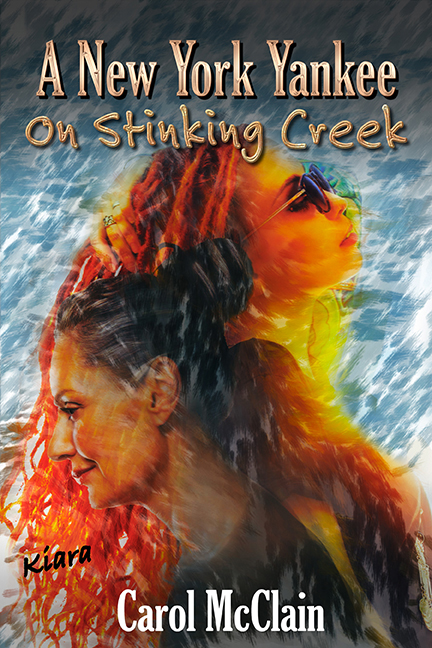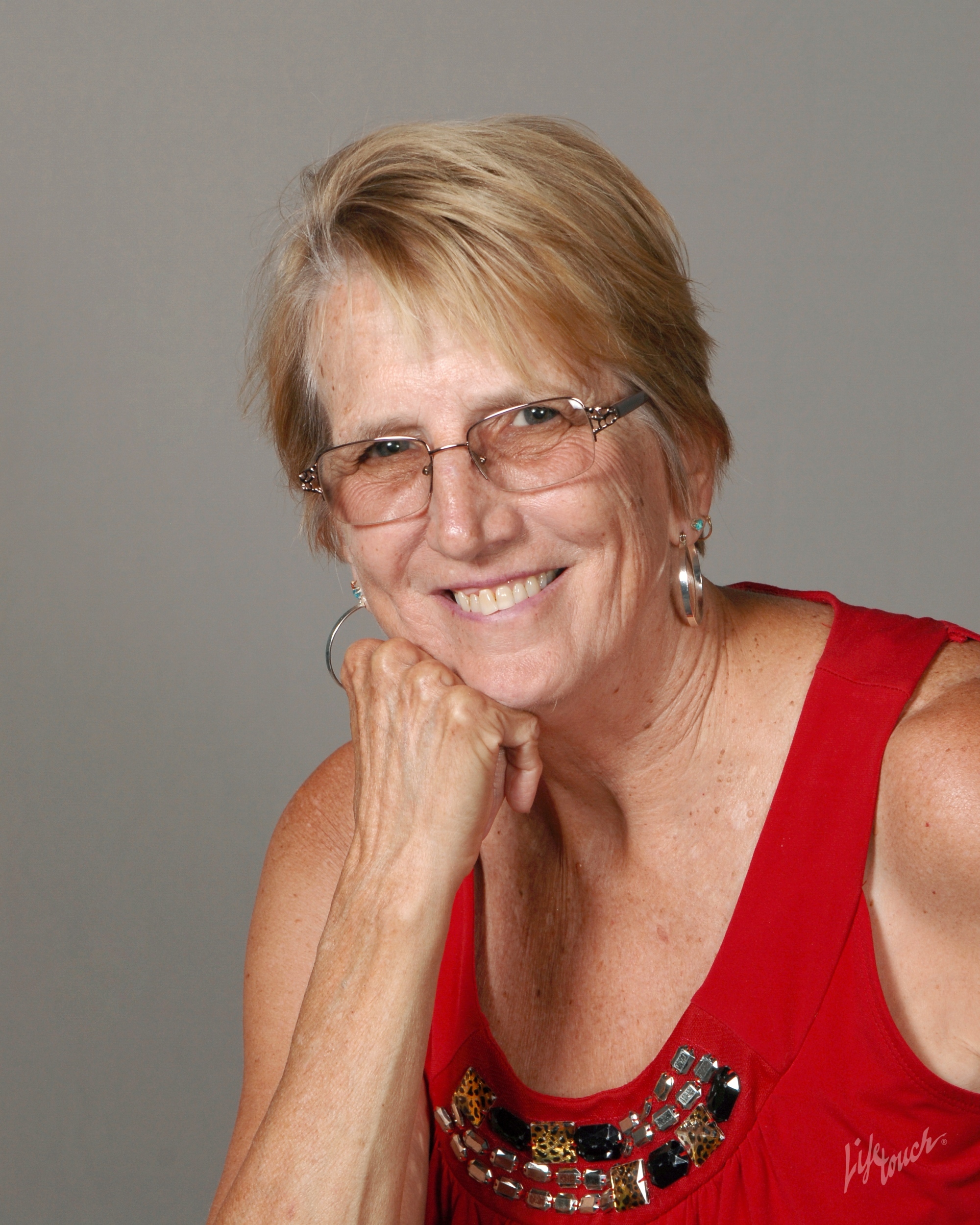Book titles are so hard to get just right. How can one encapsulate a 50, or 75, or 100 thousand-word novel into a few words that capture not only the plot, but a prospective reader’s imagination? But when this is done right, a book just leaps off the shelf, and that’s just what my new friend Carol McClain has done with her newest release, A New York Yankee On Stinking Creek. And the blurb sounds just as compelling!
Alone, again, after the death of her fiancé, abstract artist Kiara Rafferty finds herself on Stinking Creek, Tennessee. She wants out of this hillbilly backwater, where hicks speak an unknown language masquerading as English. Isolated, if she doesn’t count the snakes and termites infesting her cabin, only a one-way ticket home to Manhattan would solve her problems.
Alone in a demanding crowd, Delia Mae McGuffrey lives for God, her husband, her family, and the congregation of her husband’s church. Stifled by rules, this pastor’s wife walks a fine line of perfection, trying to please them all. Now an atheist Yankee, who moved in across the road, needs her, too.
Two women. Two problems. Each holds the key to the other’s freedom.
Scroll on to learn more about Carol and her cleverly-titled book, which is available now from Amazon and Barnes and Noble.
Welcome to the blog, Carol!
Thank you so much for the opportunity!
What was your inspiration for A New York Yankee on Stinking Creek?
So many things inspired me to write this novel. I moved to Tennessee about four years ago. A hamlet near us had a name that made me laugh . Who’d name their town Stinking Creek, especially as this sweet town has no malodorous water?
I’ve always loved Mark Twain’s A Connecticut Yankee in King Arthur’s Court. The novel is an anachronous romp into medieval times. I figured I’d play up the idea in a modern day world.
I worked in Manhattan for many years. Then I considered Stinking Creek, a small rural village and wanted to play up the perceived differences of the liberal know-it-all and the conservative know-it-all and create a world where we see ourselves, see love and sacrifice, and see what really matters in life.
Which character in the book was the easiest for you to connect with, and why?
Ironically, I connect more with Delia Mae “Lia” McGuffrey, the Southern conservative Christian. She’s bound by rules and the desire to please God and to be holy as He is holy (1 Peter 1:16). I manage to get myself bound up in trying to please God (and others). I can make the whole world—even the Lord—crazy.
I started the last paragraph with the adverb ironically. Most people who know me think I’m the more liberal, free-spirited, artistic protagonist.
In reality, they’re two halves of a black and white cookie.
What did God teach you during the writing of Stinking Creek? What spiritual truths or nuggets of wisdom do you hope your readers take away from the book?
The extremes of anything are out of balance—extreme religion or no-religion, extreme liberalism or ultra-conservativism. As the adage goes, there’s a fine line between genius and insanity (which says I’m borderline genius). So too, only a fine line separates the radical liberal and fanatical conservative.
As you look back on your journey to publication, how did God open those doors for you? What event or connection that may have seemed insignificant at the time ended up being enormously important?
It seems that as I hang on to writing and my grip loosens, and I’m certain I need to quit, something happens that changes my mind. It’s always little and subtle. Sometimes a reader messages me about how much she loved my work or a writing colleague sends me unsolicited encouragement.
David slew a giant with a pebble. God slays my doubts with the little things.
What does your writing routine look like, if you have one? What obstacles or challenges present themselves in making time to write?
My writing schedule tends to run through the fall, winter and early spring. Once outdoor season and gardens and boating arrive, I take a writing vacation. During this time I spend lots of time reading.
Sadly, I can no longer read a novel without analyzing how the author achieves his/her effects. I study the good and the bad and hope to incorporate the best into my writing.
Haha, I’m selfishly glad I’m not the only person whose reading has permanently changed since becoming a writer!
What do you do when you’re not writing?
The question before this one answered much of this question. One might ask, what don’t I do?
My passions are words and glass. When not writing, I create stained glass, glass garden flowers, and sun catchers.
I’m a member of ACFW Knoxville, and I am the current president. I am also the secretary for the Authors Guild of Tennessee.
I love teaching. When situations arise and I can teach, I do so.
Life is short. Grab it all.
When I’m not involved with the above, I play Candy Crush.
If you could have coffee/tea/gratuitous amounts of carbs with any author(s), living or dead, who would you choose? What would you talk about?
Annie Dillard.
One year, my AP English Language and Comp students passed around a photo while whispering frantically. They loved teasing me about making them read A Pilgrim at Tinker Creek, probably one of my all-time favorite books.
I, of course, received the photo.
“We know why you like Dillard so much,” one student said.
“Why is that?” I looked at the picture of a blonde woman, about my age. She had an oval face with a high forehead over eyes shaped like mine. Her nose and lips also resembled me. Even I could see the similarities. (in this photo, at least).
“You’re her!” the class chorused.
Oh how I wish I could write like her. Of any contemporary author, I’d love to have a style as unique as Dillard’s.
Her books are heavenly.
If Dillard were unavailable, T.S. Elliott or C.S. Lewis would be my next choices.
How can we pray for you?
In so many ways. I need clarity in God’s direction. I’m at a crossroads in my professional life. I love writing novels, and want to continue. If this is God’s will, He has to make it abundantly clear.
Meet Carol
Versatile.
Others say weird.
In truth, McClain’s wacky and wonderful.
As a youth, she believed herself an odd-ball, craved being like others. She even practiced writing in cliches because her classmates did, and if they thought the phrases were cool, they had to be.
Fortunately, that phase passed, and she now celebrates her own diversity. She plays bassoon, creates stained glass, enjoys high ropes, loves to run and, of course, she writes.
For thirty years she attempted to teach teenagers the joys of the English language. Judging from the prevalence of confusion with their, they’re and there–not to mention your and you’re and the rest, she hasn’t succeeded much. She’s now on a quest to make magic with her own words. Visit her online at www.carolmcclain.com.

